Are you expecting a pay rise next year? You might want to think again…
Less than half of Australian workers received one this year – although that’s not stopping them from getting their hopes
up.
Airtasker’s second Future of Work study found that 55 per cent of Australian workers expect a pay rise in the next 12 months.
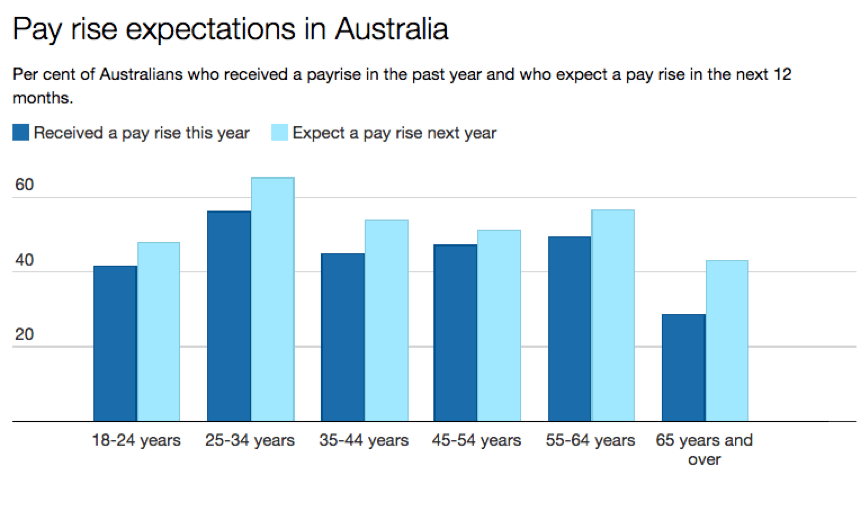
The findings come after Productivity Commission chairman Peter Harris warned that growth in wages could slow to half the rate of the past 50 years.
The number of Australians using online platforms such as Airtasker,UberX and AirBnB to earn extra money has doubled sinc January.
The newest study looked at pay rises, hours worked, employment type and desire to earn extra money outside of “9 to 5” jobs.
It was based on a representative survey by Pureprofile of 1015 employed Australians and expands on the findings of the first Future of Work study released in January.
“This study shows that there is still a strong desire among Australians to earn extra money through traditional work channels,” said Airtasker co-founder and CEO Tim Fung.
“However, we’ve also unearthed a mismatch in expectations with pay rises that we expect to grow as technology continues to evolve the way we work”.
“More and more workers are turning to sharing economy platforms to remedy diminishing hours, slower wage growth, or simply to take charge of their work-life balance and become their own boss.”
The study revealed:
- Pay rise expectations have outpaced the number of Australians who actually received a pay rise in the past 12 months, across all age groups.
- The number of Australian workers using online platforms such as Airtasker, UberX and AirBnB to earn extra money has doubled since January.
- More workers say they are on the look-out for a new job compared to January.
- Few Australians work more than 40 hours a week.
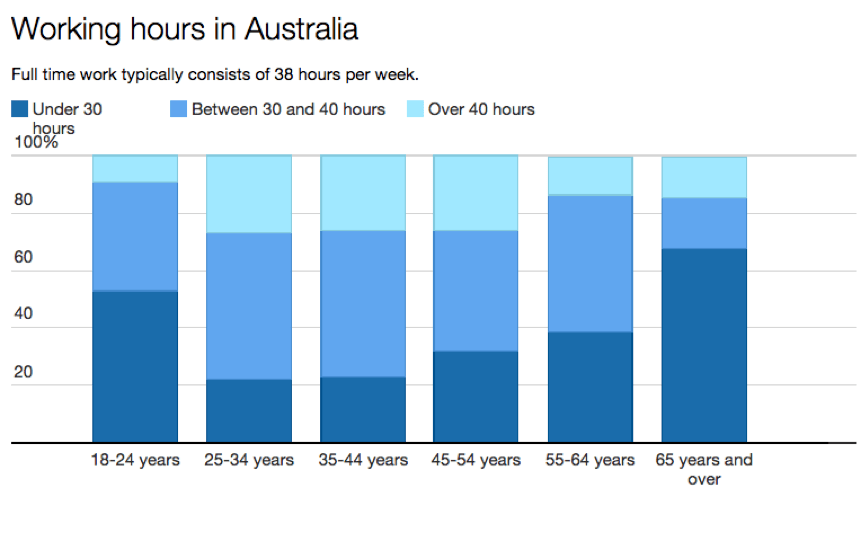
- Most work between 30 to 40 hours. However, the majority of women surveyed indicated they worked less than 30 hours per week.
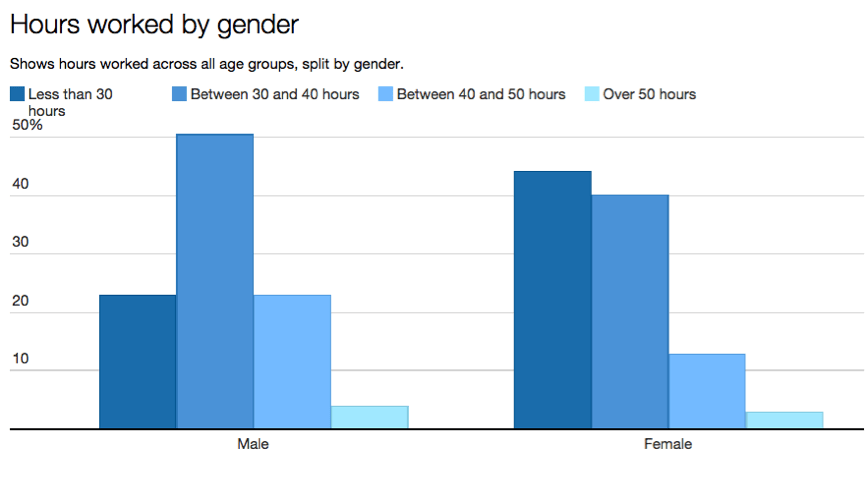
- Compared to the earlier Future of Work study, pay has overtaken flexibility in terms of the most important characteristic of work.
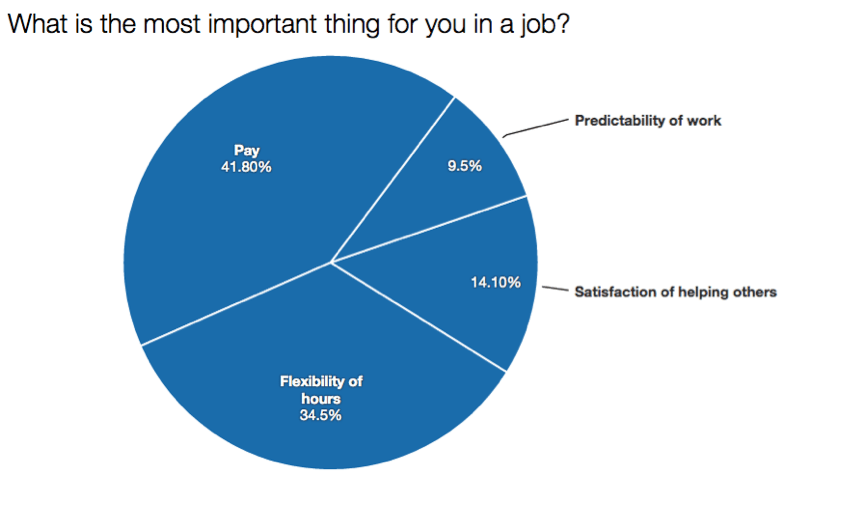
- Finally, the desire to earn extra income is high among all age groups.
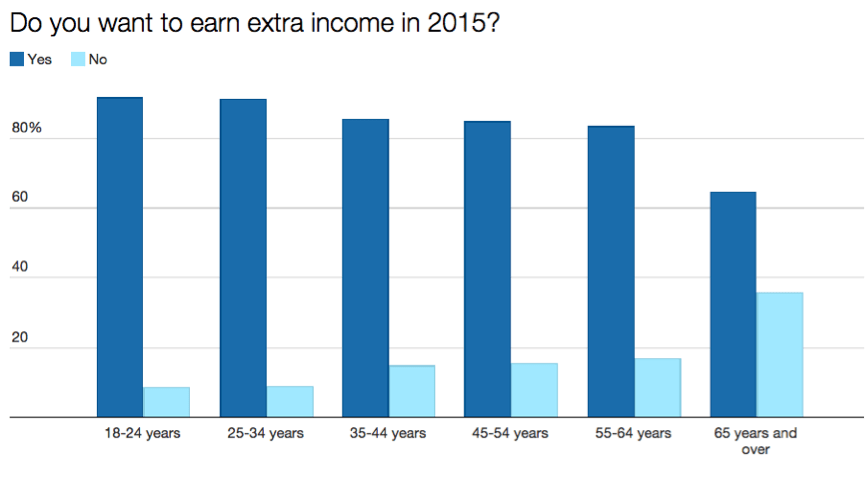
Additional findings:
- 45% of respondents say they are likely or very likely to look for anew job in the next 12 months. This is up from 43.5% from the first Future of Work study in January.
- 83.4% strongly agree or moderately agree that: “The traditional employment model of the ‘9 to 5’ office job is inflexible for
workers in 2015 and into the future.” This is down from 84.8% in January. - 79.9% strongly agree or moderately agree that: “The flexibility of freelancing/working for yourself makes up for the lack of
certainty/predictability of work.” This is up from 76.4% in January. - 8% of those surveyed said they are using online platforms such as Airtasker, Freelancer, 99Designs, UberX and AirBnB to earn extra money. This is up from 4% in January.


